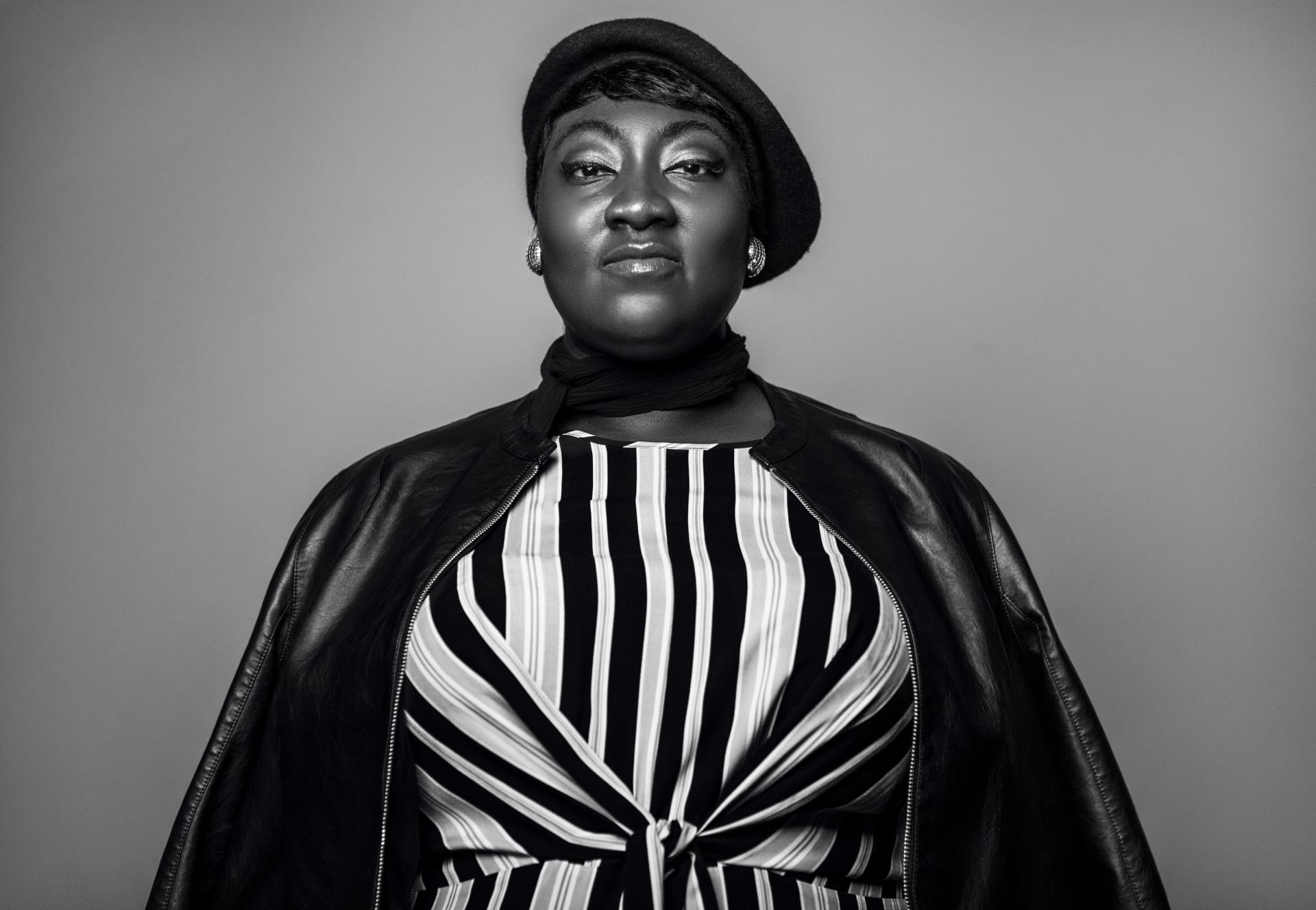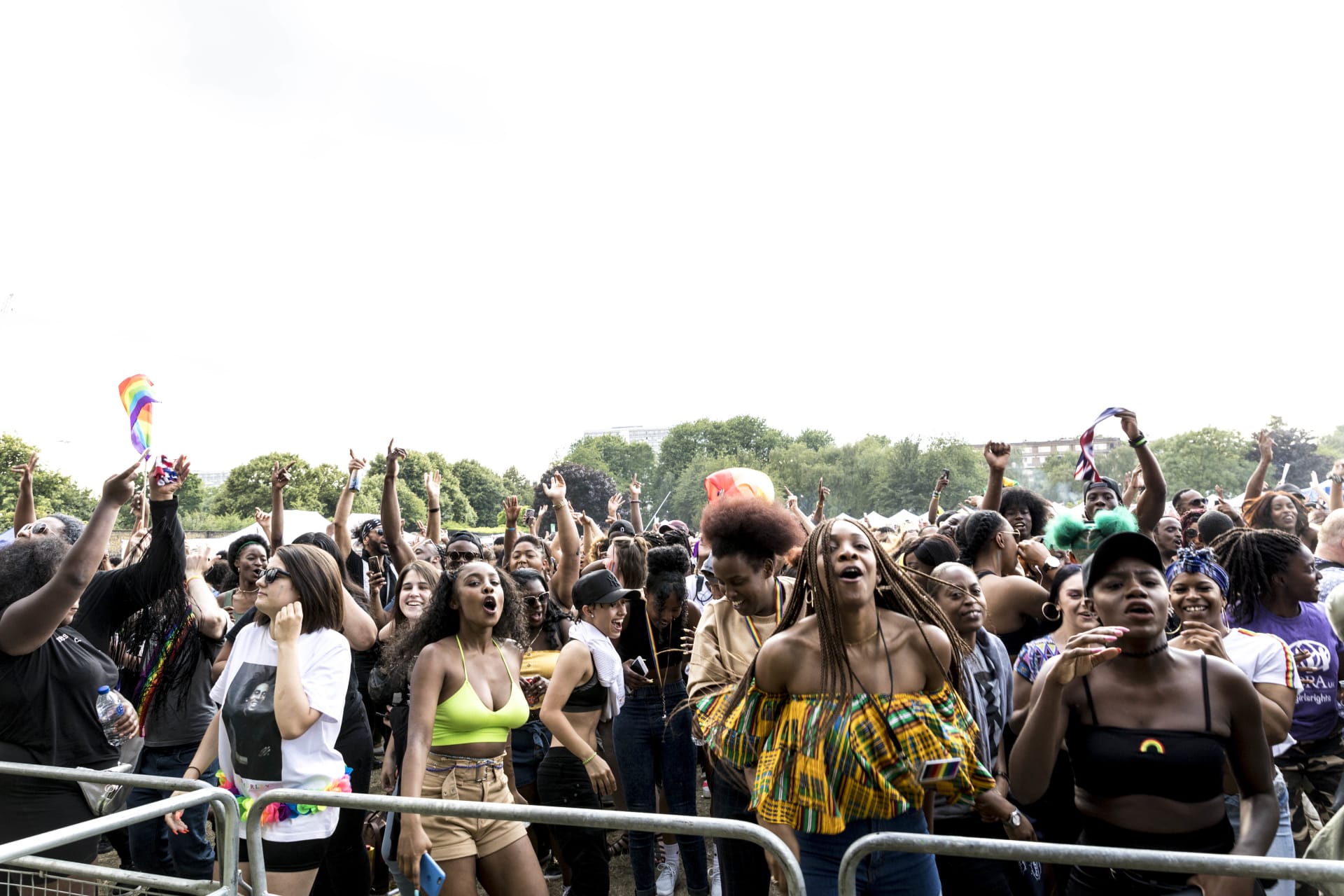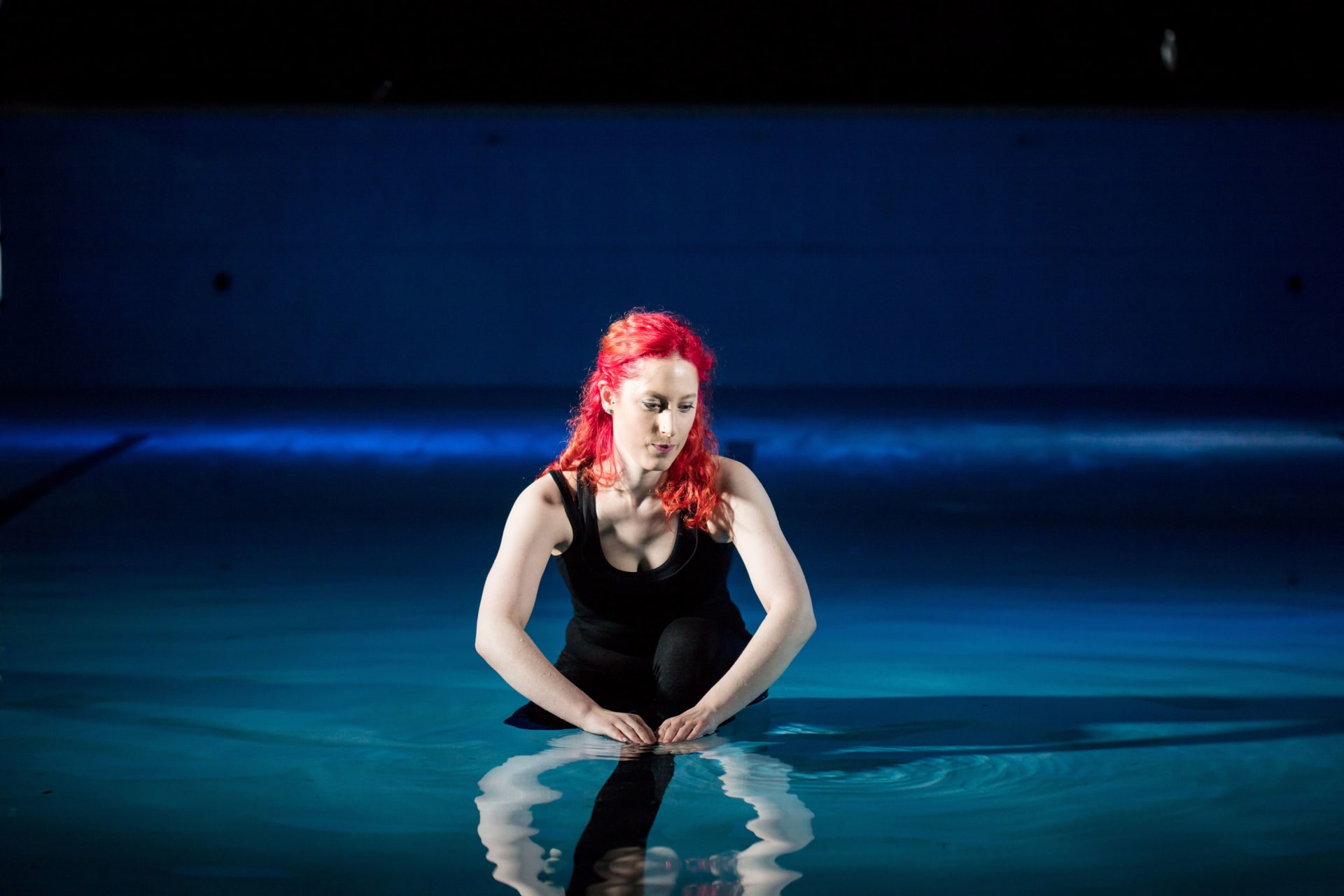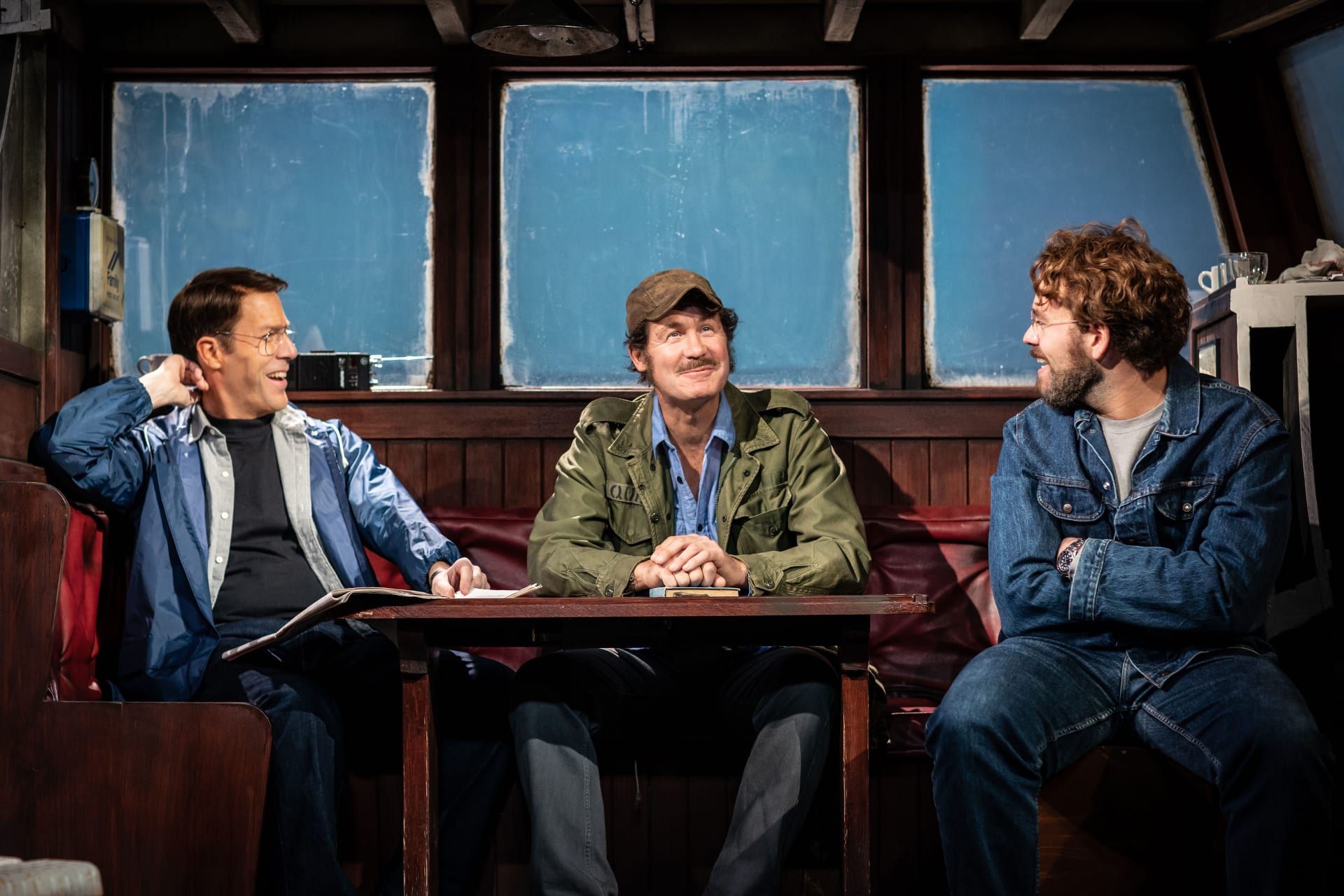Following the decision to postpone UK Black Pride, its co-founder Phyll Opoku-Gyimah (AKA Lady Phyll) talks about what they’ll be doing instead, no-platforming and the calls for ‘White Pride’.
“It might be a bit noisy,” a locked-down Lady Phyll warns on the phone, then activating her coffee machine – one of “the joys of working from home”. She and her daughter haven’t killed each other yet, says the UK Black Pride executive director, reckoning she’s also become “pretty good” at her legs, bums and tums workout. Simultaneously, while the current situation means free time for some, she’s “still incredibly busy trying to fight for survival of an organisation, and people’s livelihoods here and abroad”. In my own work, I’ve felt a little less pressure than usual, in a climate where I sense empathy towards any individual or business doing what they can under the circumstances. “People are generally a little bit more forgiving,” she says, “because we’re going through these weird and wild times. Nobody’s ever known anything like it. There are some things you make up as you go along and other things which just have to be put on hold because it’s beyond your control.”
How does Covid-19 – which she now calls a plague instead of a virus – specifically touch queer people and people of colour? To answer, she says, you have to consider what marginalised and vulnerable communities faced prior to coronavirus. If Covid leads to certain police powers “which are already disproportionately impacting black communities, then that’s something that will affect us.” The disease threatens the homeless, she resumes, many of whom belong to the queer BAME community. There are queer deaf people – already challenged – who’ll find virtual interaction far from straightforward, and QPOC now confined to spaces in which they’re misunderstood by family –“If I had to go back to my parents’ home because of Covid-19, and I couldn’t be free to be myself and talk about the women I choose to love… then fuck, I would be depressed.”
It’s due to coronavirus that this year’s UK Black Pride has been postponed. But Prides are about more than one day, I point out, and the team must be working on something by way of replacement. “You’re thinking, what is that?” she says, before predicting a Black Pride incarnation of “joy, fun, music, and laughter in a time when we need to laugh”. Digital Prides are great, she says, but they do still need to be safe spaces where people don’t feel exposed, disregarded, judged or bullied. “Our communities have faced so much vulnerability, trauma in certain instances, that if we create something that doesn’t feel like it’s for them and doesn’t feel safe, then we’re doing our communities a disservice.” Thus, the fruition of cyber-Black Pride could take a while, “but we’re going to have something really good – and it’s not going to be me singing.”
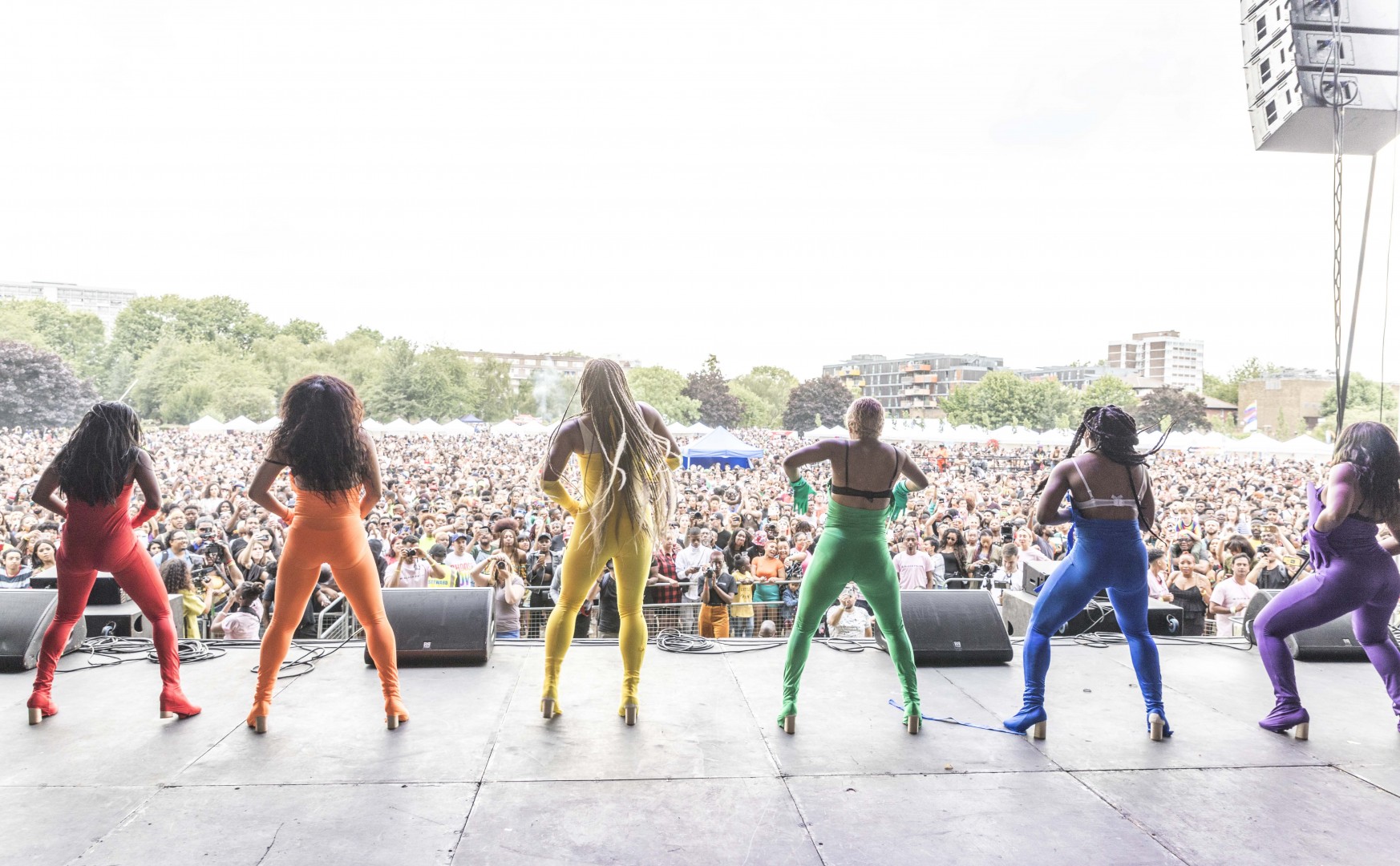
She was “absolutely crushed” at having to suspend the 15-year-old event, which welcomed thousands to London’s Haggerston Park in 2019, and every year sees “people coming together in a space created by and for them. For many, that one day makes their life – you realise you’re not going to see them in that light, in the physical sense. But Covid is bigger than any Pride, any Olympics, any event taking place, because there’s loss of life. We need to keep our communities safe. And I mean all communities; whether you’re from the LGBTQ community, whether you’re from the black community. This is not about identity politics, this is not about one group having hierarchy over another. This is recognising different groups will suffer and feel the impact differently. This is not just about a Pride. It’s about showing pride in all the things we have achieved, that we are going to achieve, want to achieve; whether it’s in our NHS, through our digital Pride space, making sure we see positive and inspirational role models who happen to be non-binary, bisexual, transgender – I’m prattling on,” she says. “I think this is what happens when you’re at home by yourself.”
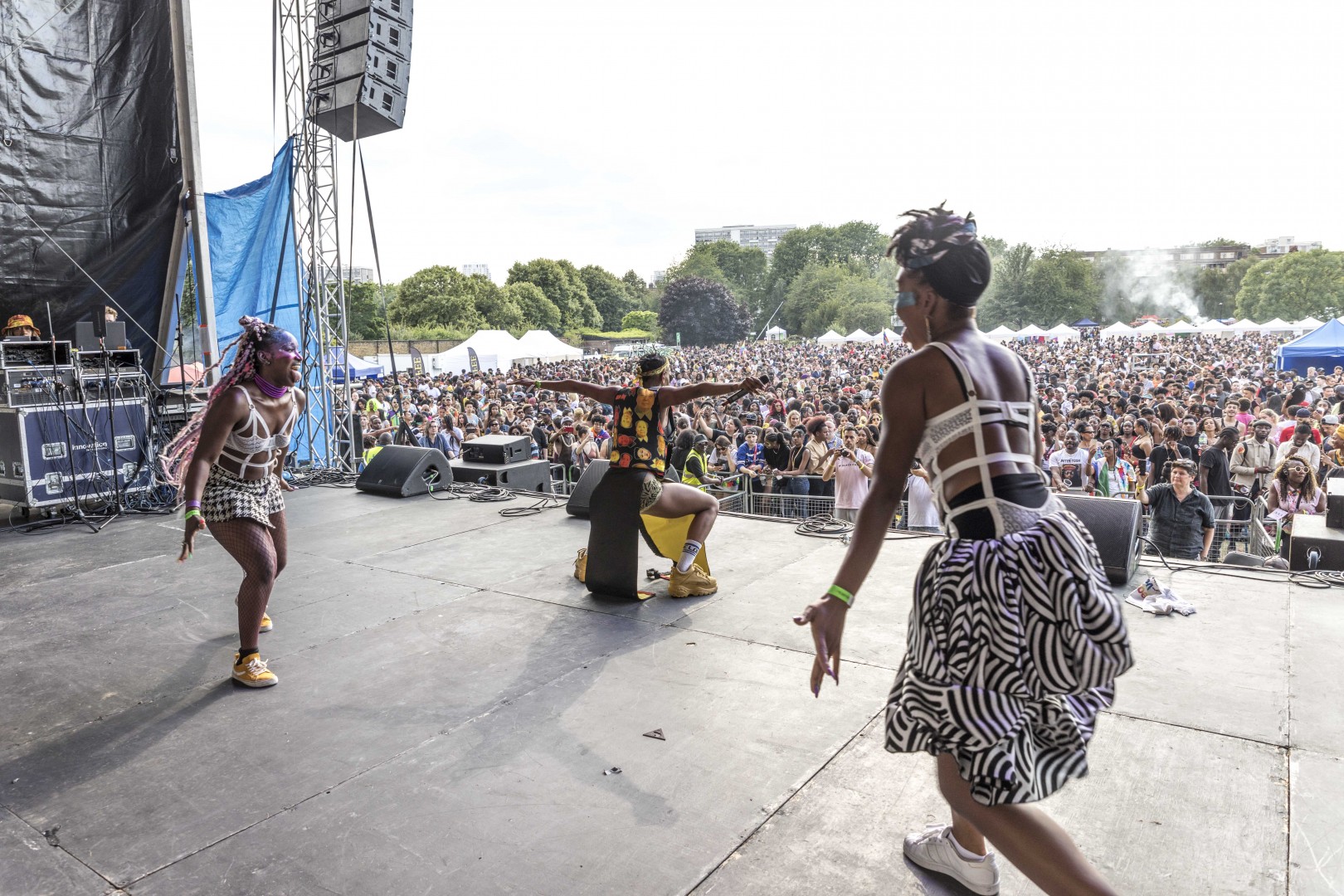
She laughs when I move the conversation into the realms of requests for ‘Straight Pride’, which make me wonder whether over the years she’s heard wishes for ‘White Pride’. “That is not even a question,” she says, thinking back to “the odd death threat” and vehement anger “that a group of people would even think to create a space for people of colour to celebrate themselves”. Opponents would complain of the celebration’s existence, protesting that a ‘White Pride’ would be deemed racist. “It’s not racist to have Black Pride,” she says, “when black people, people of colour, face discrimination. It’s not prejudice to self-organise in a way that allows for black and brown people to feel like they’re stepping up the ladder. Our stats don’t lie. Look at equal pay and how it disproportionately impacts women. Look a little bit further… how does it disproportionately impact black women who are even further behind the curve? Why is it wrong to exercise one’s right to amplify who we are, what we do, our needs and aspirations? It’s not.”
The day before speaking, I’d watched a recording of her in an Oxford Union gay rights debate, a “nerve-wracking” gig in which – as a proud lesbian with children and grandchildren – she argued for the motion that ‘this house would be glad to have gay parents’. Going into the debate (which her side won overwhelmingly) she knew there hadn’t been myriad students of colour at Oxford; that there’s a certain way to carry yourself, yeas and nays, and “a level of antiquated bureaucracy to how Oxford Union operates. At the same time,” she says, “whilst I was there, I couldn’t be happier that LGBT people had a union space where they were talking about so many different issues. So it was a scary-beautiful moment.” Afterwards, attendees approached her, “super happy that I was able to speak to certain issues they felt hadn’t come up yet, or didn’t know how to broach. That was nice. I came away with a sense I’d managed to either influence change or reach out to somebody who needed advice.”
In March the city of Oxford staged its international women’s festival, making the news for no-platforming Professor Selina Todd, who has attracted criticism for her views around trans issues. Speaking more generally, I ask for her stance on no-platforming. She describes the question as very difficult, before wondering if it actually is. It’s up to organisers who they invite to speak, she says, but “if someone’s words are violent towards a community already traumatised by hate and fear, why would you give a voice to a racist or fascist who doesn’t like their being?” She wouldn’t share a platform with Tommy Robinson, for instance, unwilling to “waste time arguing why he should not speak about Muslims, black people, women in derogatory ways. Other people need my energy in different ways.”
Currently, she continues, trans people are facing putrid press and “horrendous shit”, so may well not “want to be on a platform with somebody who only wants to talk about toilets and tell them they’re not biologically born a woman and don’t understand sexual health or reproductive rights.” We should keep on discussing the important issues of sexual health and reproductive rights, she says, but she’ll not subscribe to the “bullshit” denoting trans people as wrong and weird. “And anybody around me that does, I can’t subscribe to you. You’re not really for equality, equity, justice and freedom, and can fuck right off.”
On that note, I start to wind things down, as she stresses “that now, more than ever, we have really got to think about what solidarity looks like. We’re in this for the long haul. I don’t see coronavirus stopping any time soon. This is not a time to exclude people from online spaces. It’s a time to ensure the spaces you’re creating look at things through an intersectional lens. And if it doesn’t, I don’t know what you’re doing it for.”

